LIFESTYLE
Strings, Solos, Legends: The Best Guitarists Ever Ranked
March 31, 2025

There’s something magical about the sound of a guitar. Whether it’s the raw energy of a distorted riff, the soul of a slow blues solo, or the emotion in a few well-placed notes, the guitar has been the voice of rebellion, love, pain, and joy for decades. It’s more than just an instrument. It’s a storyteller, and behind every great guitar is a musician with a story worth telling.
Some guitarists go beyond just being technically skilled. They shape genres, change the way people play, and build emotional bridges between their music and the hearts of millions. These artists don’t just play notes—they speak a language that transcends time and culture. From the psychedelic swirls of Hendrix to the bluesy grit of Stevie Ray Vaughan, each guitarist in this list brought something unique to the world of music.
This article isn’t about ranking who’s fastest or most complicated. It’s about the players who left a real impact. The ones who gave people goosebumps, made them pick up guitars, or inspired them to feel something deeper through sound. These are the legends some still with us, some long gone but all of them unforgettable.
So let’s take a journey through the lives of 10 of the greatest guitarists the world has ever known. Get comfortable, maybe put on your favorite album, and enjoy the stories behind the people who helped shape music history one string at a time.
1. Jimi Hendrix (1942–1970)
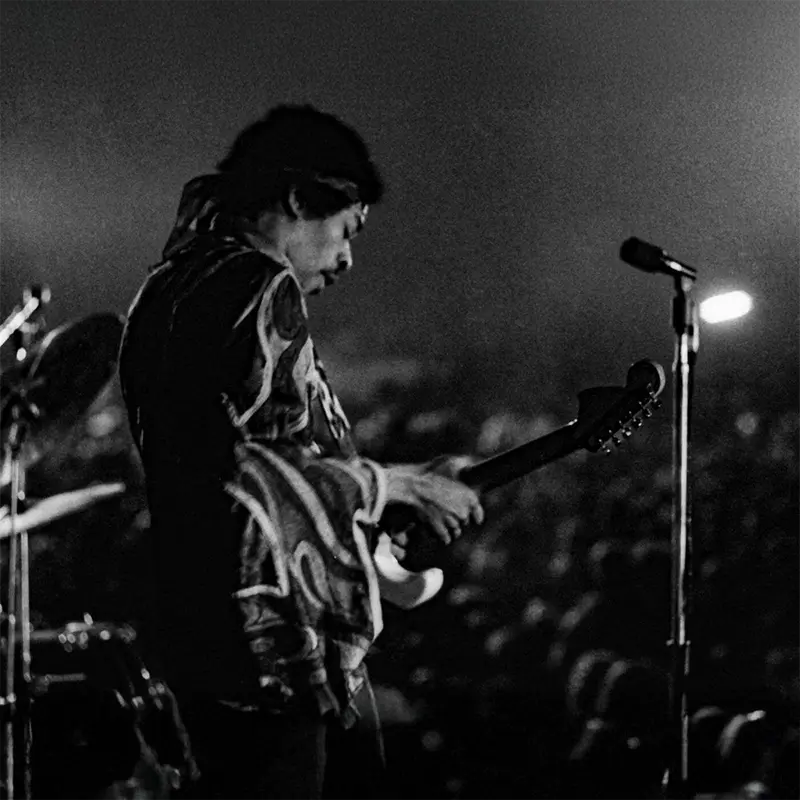
Born on November 27, 1942, in Seattle, Washington, Jimi Hendrix had a challenging childhood, often living with relatives or acquaintances due to his parents' unstable relationship. Despite these hardships, he developed a deep passion for music, drawing inspiration from artists like B.B. King, Muddy Waters, and Robert Johnson.
In 1961, Hendrix enlisted in the U.S. Army but was honorably discharged in 1962 after an injury. He then worked as a session musician for acts like the Isley Brothers and Little Richard, honing his skills in the vibrant rhythm and blues scene.
After moving to New York's Greenwich Village in 1966, he was discovered by Chas Chandler of the Animals, who brought him to London where he formed the Jimi Hendrix Experience with Noel Redding and Mitch Mitchell.
The band's 1967 debut album 'Are You Experienced' featuring tracks like 'Purple Haze' and 'Hey Joe' revolutionized electric guitar playing with innovative use of feedback, distortion, and wah-wah pedals.
Tragically, Hendrix died on September 18, 1970, at age 27, leaving behind a legacy that continues to influence generations of musicians.
2. Eric Clapton (1945–Present)
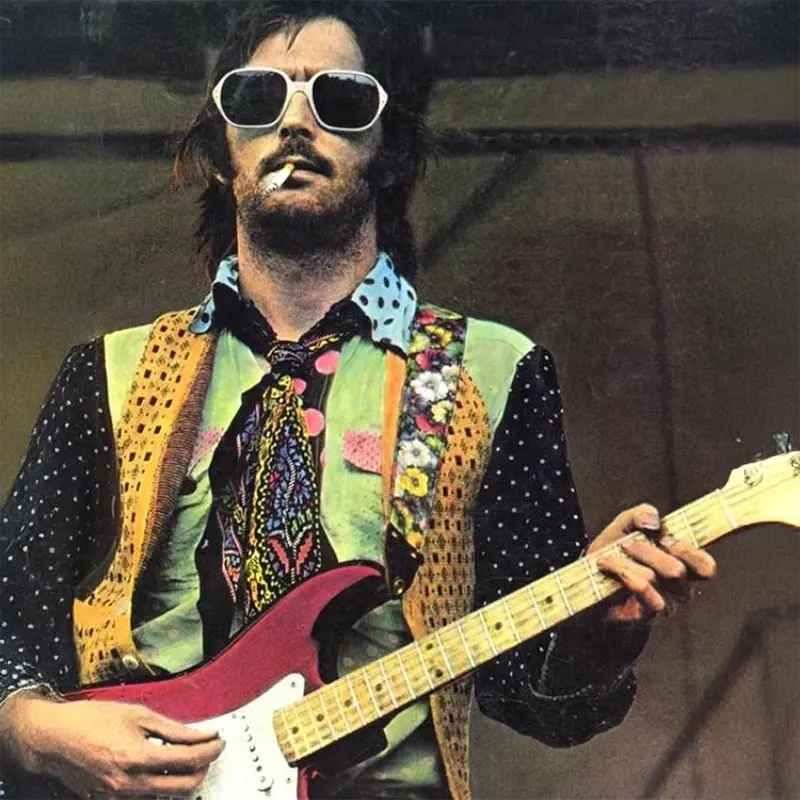
Born March 30, 1945, in Ripley, Surrey, England, Eric Clapton developed an early interest in blues, drawing inspiration from B.B. King and Muddy Waters.
His career began with the Yardbirds in the early 1960s, earning him the nickname 'Slowhand.' He later joined John Mayall & the Bluesbreakers, showcasing his mastery of blues guitar.
In 1966, Clapton co-founded Cream with Jack Bruce and Ginger Baker, producing classics like 'Sunshine of Your Love' before the band dissolved in 1968 due to internal tensions.
His 1991 song 'Tears in Heaven,' written after the tragic death of his four-year-old son Conor, became one of his most poignant works, earning multiple Grammy Awards.
Clapton's career spans over five decades, collaborating with numerous artists while staying true to his blues roots, cementing his legacy as one of history's greatest guitarists.
3. Jimmy Page (1944–Present)
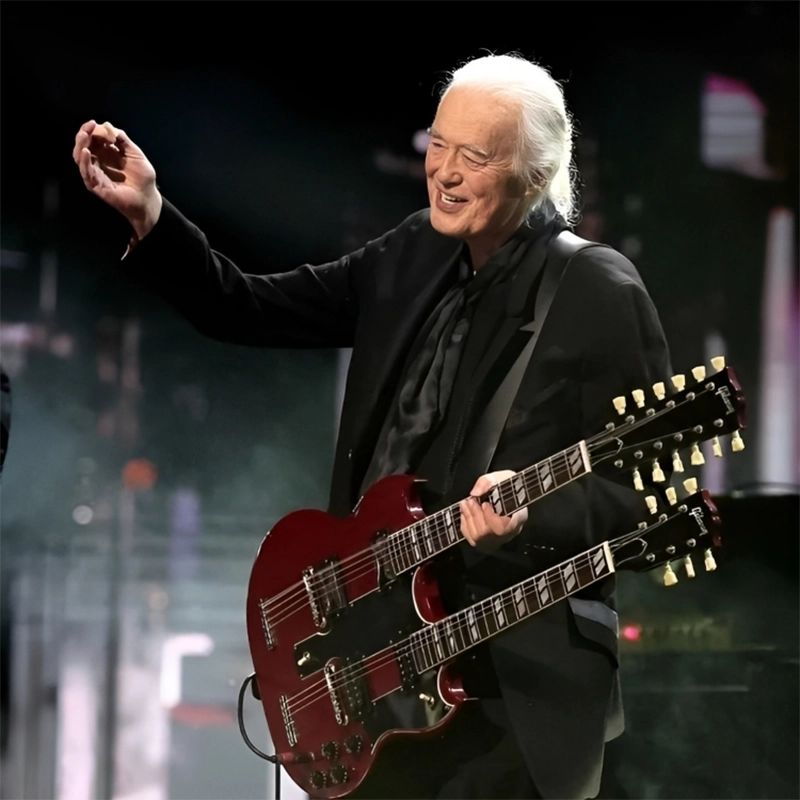
Born January 9, 1944, in Heston, Middlesex, England, James Patrick Page began playing guitar at age 12, largely self-taught with early influences including Scotty Moore and James Burton.
He started as a session musician in early 1960s London, working with artists like The Who and The Kinks before joining the Yardbirds in 1966.
After the Yardbirds disbanded, Page formed the New Yardbirds which became Led Zeppelin, releasing their groundbreaking debut album in 1969.
Page's innovative guitar work on tracks like 'Whole Lotta Love' and 'Stairway to Heaven,' along with his production skills, helped define Led Zeppelin's sound.
Inducted twice into the Rock and Roll Hall of Fame, Page's influence on rock guitar remains profound decades after Led Zeppelin's 1980 dissolution.
4. David Gilmour (1946–Present)
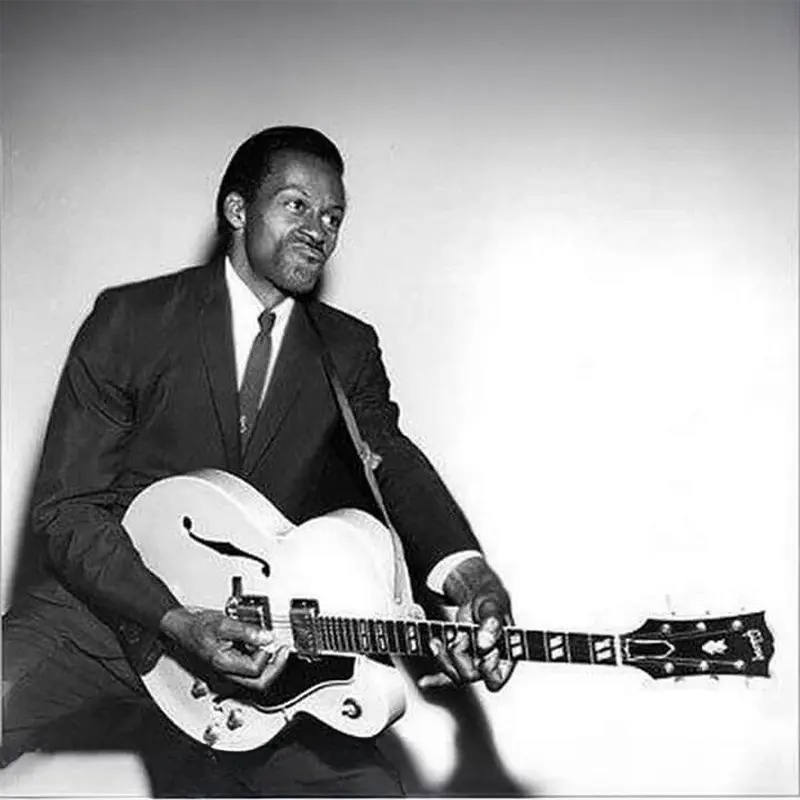
Born March 6, 1946, in Cambridge, England, David Jon Gilmour taught himself guitar as a teenager, captivated by American rock and blues.
He joined Pink Floyd in 1967 as a replacement for Syd Barrett, eventually becoming lead guitarist and vocalist as the band evolved their psychedelic sound.
Gilmour's atmospheric, emotional playing on classics like 'Comfortably Numb' and 'Shine On You Crazy Diamond' became Pink Floyd's signature sound.
After Roger Waters' departure in the 1980s, Gilmour led Pink Floyd through successful albums like 'A Momentary Lapse of Reason' and 'The Division Bell.'
Known for his reserved personality and philanthropic work, Gilmour remains revered for his soulful, melodic approach to guitar playing.
5. B.B. King (1925–2015)
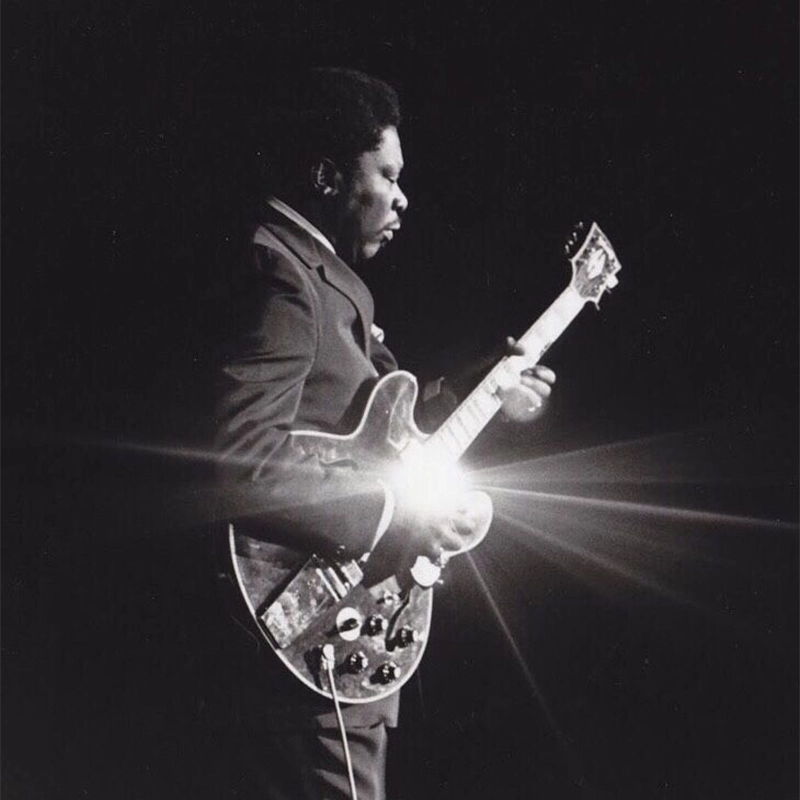
Born September 16, 1925, near Itta Bena, Mississippi, Riley B. King overcame childhood poverty to become the 'King of the Blues.'
After moving to Memphis in 1946, he gained radio exposure that earned him the nickname 'Beale Street Blues Boy,' later shortened to B.B.
His beloved Gibson guitar 'Lucille' and distinctive style featuring fluid string bending and shimmering vibrato became blues trademarks.
King's 1969 hit 'The Thrill Is Gone' brought him mainstream success, while collaborations with artists like Eric Clapton bridged blues with other genres.
With numerous accolades including Rock and Roll Hall of Fame induction, King performed into his later years before passing away on May 14, 2015.
6. Chuck Berry (1926–2017)

Born October 18, 1926, in St. Louis, Missouri, Charles Edward Anderson Berry is often called the father of rock and roll.
His 1955 hit 'Maybellene' blended rhythm and blues with country, creating a revolutionary sound that appealed to wide audiences.
Berry's songwriting captured 1950s youth culture with classics like 'Johnny B. Goode,' while his guitar style and iconic 'duck walk' influenced generations.
Despite legal troubles, Berry continued performing into his 80s and was among the first inductees into the Rock and Roll Hall of Fame in 1986.
He passed away on March 18, 2017, leaving an indelible mark on rock music that continues to resonate worldwide.
7. Eddie Van Halen (1955–2020)
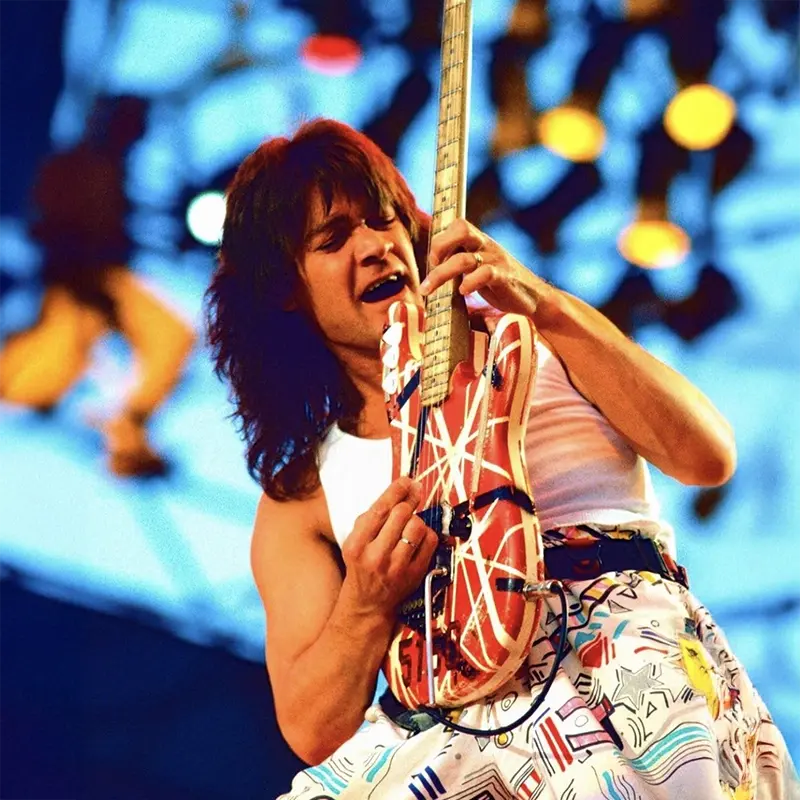
Born January 26, 1955, in Amsterdam, Edward Lodewijk Van Halen moved to California in 1962 where he and brother Alex formed Van Halen.
The band's 1978 debut showcased Eddie's revolutionary two-handed tapping technique, particularly in the instrumental 'Eruption.'
Albums like '1984' featuring 'Jump' demonstrated his versatility, incorporating synthesizers while maintaining his guitar virtuosity.
Eddie held patents for guitar-related inventions and influenced countless musicians with his innovative playing style.
After battling cancer, Eddie passed away on October 6, 2020, leaving behind a legacy as one of rock's most influential guitarists.
8. Slash (1965–Present)
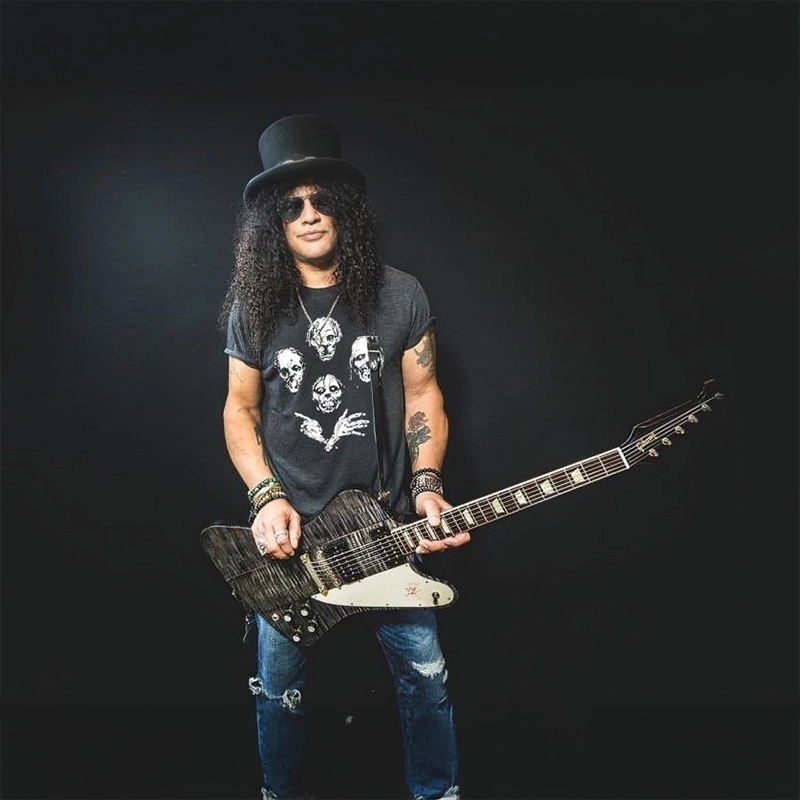
Born July 23, 1965, in London as Saul Hudson, Slash moved to Los Angeles where he became obsessed with guitar after hearing Aerosmith.
Joining Guns N' Roses in 1985, his work on 'Appetite for Destruction' (1987) defined a new era of hard rock with hits like 'Sweet Child O' Mine.'
After leaving Guns N' Roses in 1996, he formed successful projects including Velvet Revolver and his solo band featuring Myles Kennedy.
The 2016 Guns N' Roses reunion tour became one of music's highest-grossing, reintroducing Slash's iconic sound to new generations.
Beyond music, Slash advocates for wildlife conservation and addiction recovery while remaining one of rock's most recognizable guitarists.
9. Stevie Ray Vaughan (1954–1990)
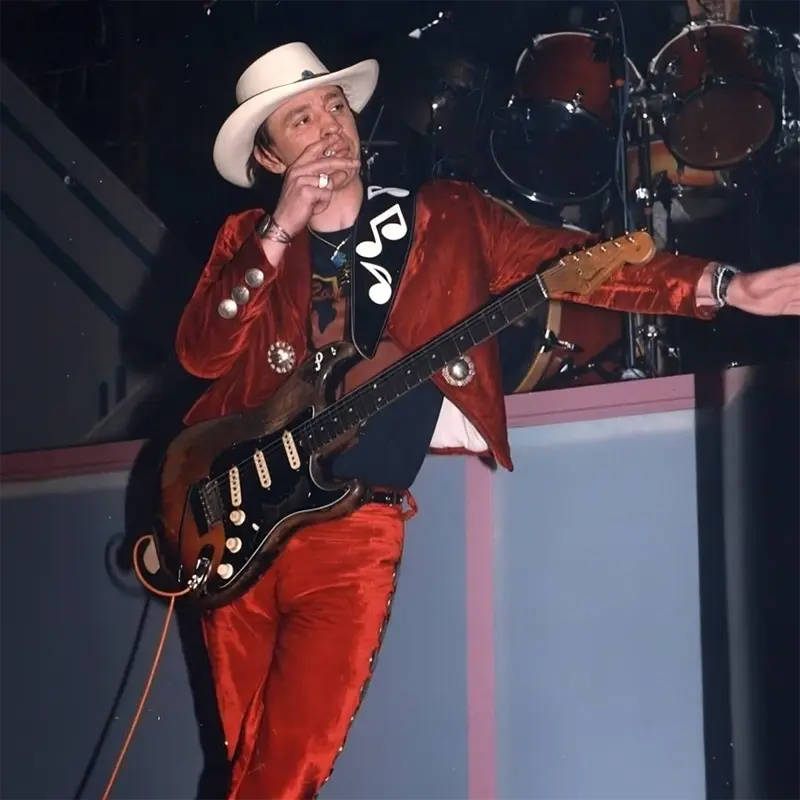
Born October 3, 1954, in Dallas, Texas, Stevie Ray Vaughan was inspired by blues legends and his brother Jimmie Vaughan to take up guitar.
After dropping out of high school, he formed Double Trouble, gaining national attention in the early 1980s with his raw blues style.
His 1983 debut 'Texas Flood' reignited interest in electric blues, showcasing his aggressive yet soulful playing on a worn Fender Stratocaster.
After overcoming substance abuse in 1986, his 1989 album 'In Step' reflected personal growth and artistic maturity.
Tragically killed in a helicopter crash on August 27, 1990, Vaughan's legacy endures as one of blues' most expressive guitarists.
10. Angus Young (1955–Present)

Born March 31, 1955, in Glasgow, Scotland, Angus McKinnon Young moved to Australia where he formed AC/DC with brother Malcolm in 1973.
Known for his schoolboy uniform and energetic stage presence, Young's playing combined blues roots with hard rock aggression.
After original singer Bon Scott's 1980 death, AC/DC continued with Brian Johnson, releasing the landmark album 'Back in Black.'
Young's simple but powerful riffs in songs like 'You Shook Me All Night Long' defined hard rock for decades.
Now in his late 60s, Young remains AC/DC's driving force, embodying pure rock energy through his Gibson SG and relentless performances.
The Strings That Shaped the World
Looking back at these ten legendary guitarists, it’s clear that greatness doesn’t come from speed or flash—it comes from connection. Each of these musicians found their own voice through six strings, and in doing so, gave a voice to millions. Their styles were different, their journeys unique, but they all had one thing in common: they made people feel something real.
Whether it was Hendrix setting his guitar on fire, Gilmour making a single note sing like a full sentence, or Angus Young sprinting across the stage in a school uniform—these are moments that shaped music history. They didn’t just play songs. They created eras, influenced generations, and reminded us that music is one of the most powerful forms of expression we have.
And while times change, good music doesn't fade. New guitarists will always emerge, but the echoes of these legends will continue to ring out—every time someone plugs in an amp, bends a note, or plays their heart out in a garage somewhere. These guitarists didn’t just change music. They changed people.







